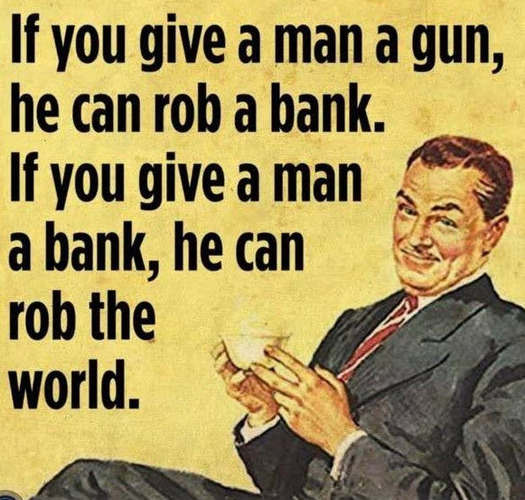
–>
October 13, 2022
Back in the 1980s (yes, a long time ago), I wrote a science fiction story set somewhere between contemporary times and the Star Trek era. I imagined humans having the run of our solar system and breaking out a bit further in the Milky Way.
‘); googletag.cmd.push(function () { googletag.display(‘div-gpt-ad-1609268089992-0’); }); }
Since human development isn’t stagnant, I knew that I needed to invent a novel political system for the future I was envisioning. I decided that the political actors would not be nation-states, but commercial enterprises that, having transcended geographical boundaries on Earth, would compete in space to expand their “market share” of wealth and power.
That’s not so far-fetched. Merchants formed guilds in the Middle Ages. The commercial classes advocated for representative assemblies, which eventually displaced monarchs as the dominant factor in governments’ evolution. I merely projected forward commercial interests’ continued development.
But I also understood that governing institutions, representative or otherwise, require an ideology to assure the allegiance of citizens and subjects. So, I assumed that the transnational corporations warring in space would have competing ideologies, like the USA and the USSR.
‘); googletag.cmd.push(function () { googletag.display(‘div-gpt-ad-1609270365559-0’); }); }
I was correct in one respect. The major political event of my Baby Boomer lifetime wasn’t President Kennedy’s assassination, Vietnam, or 9/11. It was (and is) the way the largest commercial entities have shaken off the constraints of the nation-state. Some have more economic power than nation-states. Most have the resources to purchase the votes of lawmakers and collusion of functionaries here and abroad to impose policies favorable to their interests. In this way, the transnational actors have begun to usurp the nation-states’ sovereignty.
But I was wrong as far as the warring ideologies. That may well arise in the distant future. Right now, and for the foreseeable future, the transnational actors are only making war—a cold, subversive, war—against the nation-state and not each other. The World Economic Forum represents the moment the transnationals found their ideology for the present struggle. It’s a single, uniform ideology, made to order to finally wrest sovereignty away from the nation-state. I’m referring of course to the left/progressive/neo-Marxist amalgam of climate emergencies, critical race theory, and the familiar diversity-equity-inclusion and environmental-social-governance platforms.

Image: Internet meme; creator unknown.
It’s made to order because the left/progressives, too, want to replace the nation/state, particularly the United States. They differ from the hard-nosed commercial interests only in the assumption that a world government would be wonderfully utopian.
Ironically, the very ideology that strengthens the cause of the transnationals is simultaneously the weakness of their whole global enterprise.
Here’s why:
First, the utopian assumption. Human nature encompasses a spectrum of attitudes and behaviors ranging from the heights of benevolence and self-sacrifice to the depths of depravity and bestiality. We’re just an eyeblink of history away from an era in which getting folks to refrain from killing one another on the Sabbath was a major accomplishment. We’ve progressed to rule to law, which still doesn’t exist everywhere on Earth and, in certain instances (as in the summer of 2020), not even in our own country. It may take thousands of years of evolution for humans to advance to the next stage, rule of conscience.
‘); googletag.cmd.push(function () { googletag.display(‘div-gpt-ad-1609268078422-0’); }); } if (publir_show_ads) { document.write(“
Meanwhile, every Marxist and neo-Marxist philosophy rests on the belief that, if you change the external structure of government and society, human nature will change. The evidence of millennia shows that this is just not how it works. The global philosophers also tend to overlook the fact that Vladimir Putin, Xi Jinping, Ayatollah Ali Khamenei, and their ilk also inhabit the globe and, unlike John Lennon, these characters have not for an instant begun to “imagine there’s no countries.”
Second, think for a moment about what an ideology really is in the hands of those out for conquest and power. An ideology is camouflage, a smoke screen. It’s the come-on, the sexy chick who fixates your attention on the commercial while the real power behind the image tries to sell you the car. The would-be tyrants dangle the ideology to cover their power lust.
Believers find the ideologies mesmerizing. Soviet prisons and borderlands were full of people who, while in jail or exile after Lenin’s depredations, solemnly wondered where communism went wrong. They didn’t understand the use of ideology as a smoke screen.
If there is any hopeful sign for the future at this dismal moment, it’s that the global/left ideology is beginning to dissolve. Every revelation, and every article and video on the COVID lies, the racism lunacy, and the climate fallacies further dissipate the smoke. Ultimately, the transnational project will be seen for what it clearly is: a naked power grab. And, if we’re lucky, that will hasten its demise.
Despite the razzle-dazzle of Klaus Schwab, isn’t it increasingly evident that at this point in our evolution, the nation-state is all that exists, in the words of the United States Constitution, “to secure the Blessings of Liberty to ourselves and our Posterity”? However imperfect the state may be, and however its operations may be corrupted, it is the only instrument of governance capable of such a moral purpose.
Does anyone imagine that “securing the Blessings of Liberty” can be a function of BlackRock, McKinsey, or Goldman Sachs?
<!– if(page_width_onload <= 479) { document.write("
“); googletag.cmd.push(function() { googletag.display(‘div-gpt-ad-1345489840937-4’); }); } –> If you experience technical problems, please write to [email protected]
FOLLOW US ON
<!–
–>
<!– _qoptions={ qacct:”p-9bKF-NgTuSFM6″ }; ![]() –> <!—-> <!– var addthis_share = { email_template: “new_template” } –>
–> <!—-> <!– var addthis_share = { email_template: “new_template” } –>







